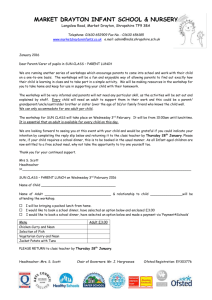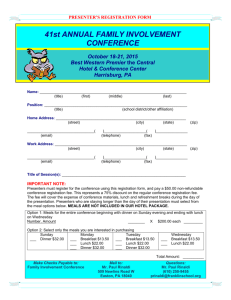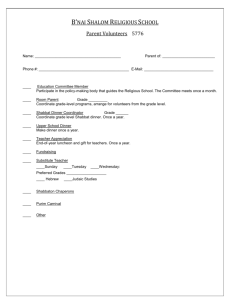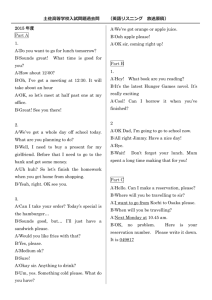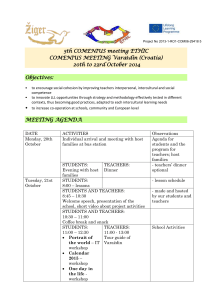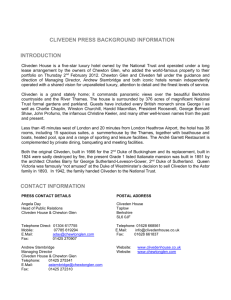TO LADY VIOLET SEYMOUR November 25, 1947
advertisement
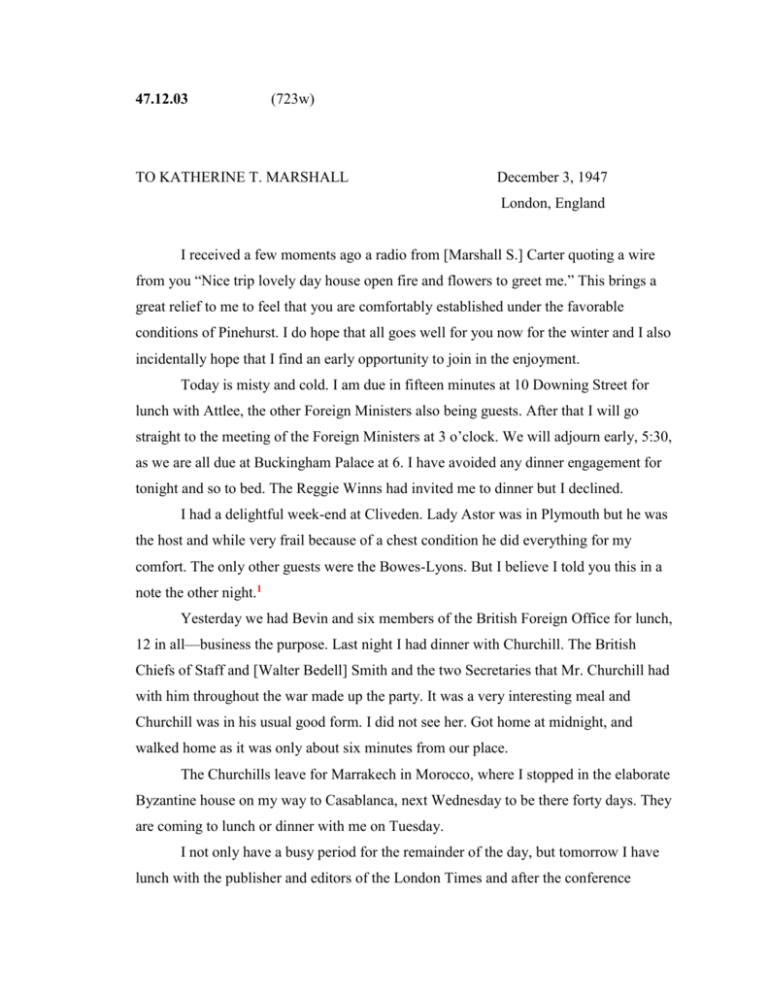
47.12.03 (723w) TO KATHERINE T. MARSHALL December 3, 1947 London, England I received a few moments ago a radio from [Marshall S.] Carter quoting a wire from you “Nice trip lovely day house open fire and flowers to greet me.” This brings a great relief to me to feel that you are comfortably established under the favorable conditions of Pinehurst. I do hope that all goes well for you now for the winter and I also incidentally hope that I find an early opportunity to join in the enjoyment. Today is misty and cold. I am due in fifteen minutes at 10 Downing Street for lunch with Attlee, the other Foreign Ministers also being guests. After that I will go straight to the meeting of the Foreign Ministers at 3 o’clock. We will adjourn early, 5:30, as we are all due at Buckingham Palace at 6. I have avoided any dinner engagement for tonight and so to bed. The Reggie Winns had invited me to dinner but I declined. I had a delightful week-end at Cliveden. Lady Astor was in Plymouth but he was the host and while very frail because of a chest condition he did everything for my comfort. The only other guests were the Bowes-Lyons. But I believe I told you this in a note the other night.1 Yesterday we had Bevin and six members of the British Foreign Office for lunch, 12 in all—business the purpose. Last night I had dinner with Churchill. The British Chiefs of Staff and [Walter Bedell] Smith and the two Secretaries that Mr. Churchill had with him throughout the war made up the party. It was a very interesting meal and Churchill was in his usual good form. I did not see her. Got home at midnight, and walked home as it was only about six minutes from our place. The Churchills leave for Marrakech in Morocco, where I stopped in the elaborate Byzantine house on my way to Casablanca, next Wednesday to be there forty days. They are coming to lunch or dinner with me on Tuesday. I not only have a busy period for the remainder of the day, but tomorrow I have lunch with the publisher and editors of the London Times and after the conference 2 adjourns at 6:30 I have another meeting and then dinner for the [Walter Bedell] Smiths and General Morgan who you may remember we put up at [Fort] Myer in the club for a few days before sending him off to Florida. He had lunch or dinner with us in Quarters No. 1—The Britisher.2 On Friday I have lunch with Molotov at the Russian Embassy and then the usual conference; then a dinner with Sir Arthur Salter, the economist.3 On Saturday there will be the usual conferences and then immediately after the meeting at Lancaster House I am motoring to the Bowes-Lyons place for the week-end. They will have no other guests so I should have a nice restful time as they are both quite agreeable and formal. Their home is about an hour’s ride north of London. I have to motor in from their place at 4 Sunday afternoon in order to be present at a reception or cocktail party at the Embassy for the officers of the Embassy, all the American Delegation and also the press. I will bring you up to date on Monday later on. I get a little restful feeling out of the very thought of your surroundings at Pinehurst. You don’t know how fortunate you are. Or fully realize how unfortunate I am. GCMRL/G. C. Marshall Papers (Secretary of State, General) 3 1. Lady Astor (Nancy Langhorne of Danville, Virginia) had been married to Lord Waldorf Astor since 1906. The first woman to take a seat in the House of Commons (1919), she had retired from her Plymouth constituency in 1945. Their country house was Cliveden in Buckinghamshire on the River Thames. Sir David Bowes-Lyon was a brother to the queen and, at this time, a director of the Cunard Steamship Company. He had married Rachel P. Clay in 1929. 2. Colonel John J. Astor was chairman of the Times Publishing Company and younger brother of Waldorf. Lieutenant General Sir Frederick E. Morgan had in early 1943 been appointed COSSAC—Chief of Staff to the Supreme Allied Commander (Designate)—and in that position had been responsible for the original OVERLORD plan. He had visited Washington at Marshall’s invitation in the fall of 1943 (see Papers of GCM, 4: 127, 177). When Eisenhower became supreme allied commander, Morgan became deputy chief of staff at his headquarters—Supreme Headquarters, Allied Expeditionary Force—and thus one of Smith’s assistants. 3. Sir James Arthur Salter had served as the head of a British shipping mission to the United States from 1939 to 1941, deputy director-general of the United Nations Relief and Rehabilitation Administration in 1944, and chancellor of the duchy of Lancaster and adviser to Churchill on policies for European relief in 1945. Since 1937, he had been serving as a Member of Parliament for Oxford University.

